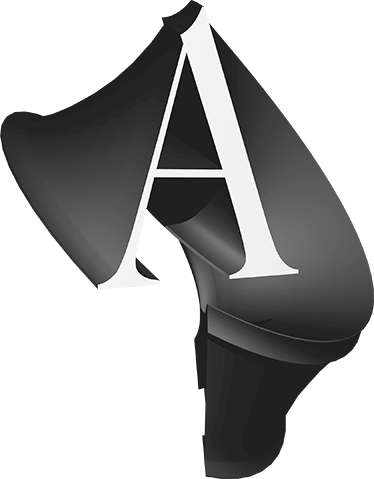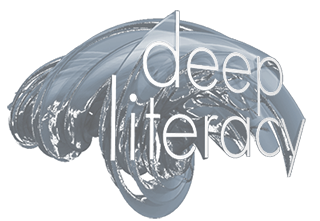The Advertising program at the London College of Communication presents The Future of Text Symposium III:

The symposium is centered around the premise that the written word is a fundamental unit of knowledge and as such is of universal importance.
The written word has continually evolved since its first appearance some five and a half thousand years ago, and moreover, it has evolved in particular evolutionary environments. Today's environment with digital text is as far removed from the printed book as the printed book is from the first scratchings on clay.
Looking back at what choices were made and which possibilities were discarded, gives us a greater understanding of the multiple functions of the written word and this can inform how we consciously evolve text for the future; how we will innovate.
arts.ac.uk/lcc/courses/undergraduate/ba-advertising
30 October 2013 10:30 - 16:30
Elephant & Castle Campus
Each speaker will have 20 minutes including dialog.
If you have any questions please contact the organizer, Frode Hegland who is a lecturer at LCC and a software developer at Liquid Information: frode@liquid.info
The first two events were hosted at The British Library 2011 and 2012. Frode Hegland's blog, which covers FoT is at wordpress.liquid.info
supporters
The event is supported by Liquid Information, developing powerful software for deep literacy:
The event is generously supported by Vint Cerf:

Refreshments sponsored by and provided by Starbucks, continuing and supporting the great British coffeehouse tradition:
Supported by Continue Magazine:
The event is supported by The Marshall McLuhan Center, Promoting Excellence in Education for the 21st Century:
The Future Of text is a Deep Literacy Initiative:
30th October 2013
Program
10:30 - 16:30 with lunch at mid day.
Before we can look at the future of text we need to take a step back and try to unlearn, to un-culture ourselves of the current way of doing symbolic notation we are living in and with.
The present is only one possible outcome of the past - what other useful outcomes could there have been? What can we learn if we manage to think fresh and what lessons of remote history is relevant for today?
becoming human
Chris Stringer of The Natural History Museum : YouTube
Research Leader in Human Origins at the Natural History Museum, and director of the Ancient Human Occupation of Britain project, Chris Stringer is a world-leading anthropologist.
Chris will set the scene for the day: The story covers the major stages in the evolution of our species and how it framed our physical and mental worlds. Who were these creatures who have been physically identical to use for at least 100,000 and to a large degree 200,000 years but who only invented writing 5,000 years ago?
first writing
Jonathan Taylor of The British Museum : YouTube
Assistant Keeper, Cuneiform collections, Mesopotamia
Jonathan will start us off with the history of the very first writing. Under what circumstances was writing invented and by whom? He will also explore some of the enduring mysteries clouding the origins of writing.
early egyptian
John Baines of Queen's College Oxford : YouTube
Professor of Egyptology and Fellow of The Queen's College , John Baines will continue the journey with the origins of Egyptian Hieratic and Hieroglyphic and how it became our own alphabet.
John takes the story further with the origins of our own writing and what would become our alphabet, an invention the world would have just once. What was writing to the ancient Egyptians - how was it used in its earliest stages, how was it different from what we consider writing to be today, and what was the evolution and co-evolution of hieratic and hieroglyphic writing?
student perspective
Ingrid Hage : YouTube
Ingrid Hage is an LCC graduate
Ingrid will present a personal perspective from the home of the alphabet.
the shape of sound
Timothy Donaldson of Falmouth University : YouTube
Professor of Graphic Design at Falmouth University and author of Shapes for Sounds.
Timothy will take a longer look at the evolution of writing from the Egyptians til today. The story of the changing shapes of our means of written communication.
social networks
Tom Standage of The Economist : YouTube
Editor of Economist.com and author, most recently of Writing On The Wall and TED X presenter.
translation
David Bellos of Princeton University : YouTube
Author of many works including ‘Is That a Fish in Your Ear?: Translation and the Meaning of Everything’,
David will present wider issues of language and writing from a translators perspective. Translation occurs between languages but also across dialects, between forms and cultures. What can the act of translation teach us about the act of writing and the act of thinking?
preservation
Vint Cerf of Google : YouTube
Co-inventor of the internet,
Vint will discuss the problem of bit rot and the preservation of digital content over 1000's of years.
parallel text
Ted Nelson : YouTube
Ted is a visionary who not only first saw the potential of interactive text, but who also coined the term ‘hypertext’
Ted will present his alternative and rich view of interactive text.
Bob Stein : YouTube
Director of the Institute for the Future of the Book
Bob will look at the future of publishing, with a rich background in early electronic books..
the ‘word’ processor
Keith Martin of LCC : YouTube
Keith Martin is a Senior Lecturer at LCC
Keith will talk about why word processors have failed us, and show highlights of the Author and Liquid projects.
Frode Hegland of LCC : YouTube
Frode will talk briefly about the LCC ‘Author’ project.
future opportunities
Frank Mehan of Spark Labs : YouTube
Frank will be talking .about his rich history in the industry and future potential
David Jablonowski : YouTube
Artist David Jablonowski has a very different view of what technology is.





